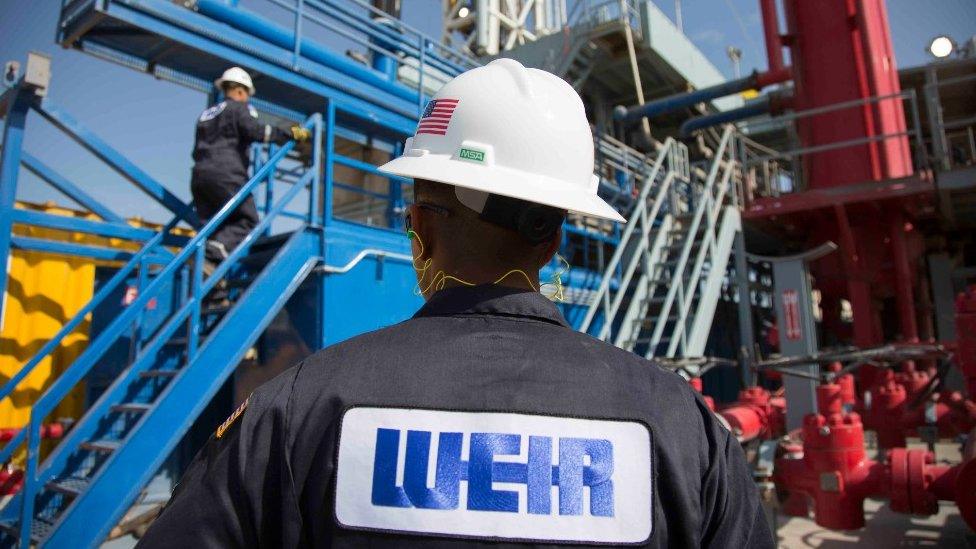Glasgow-based Weir Group exits oil and gas in £314m deal
- Published

Weir Group has announced it is selling its oil and gas division to Caterpillar in a £314m deal.
The division employs more than 2,000 people, most of them in North America. It was loss-making in the first half of this year.
Weir has pursued a strategy of leaving the power and oil and gas markets.
It has concentrated efforts on mining, which generate revenues of over £2bn annually. The business processes the majority of the world's mined copper.
This is a key component in smart phones, solar panels, wind turbines and electric vehicles.
The deal with Caterpillar is subject to approval from both Weir shareholders and regulators but is expected to complete by the end of the year.


A venerable name in Scottish engineering, Weir's move out of oil and gas is another clear signal of a transition in the energy sector.
It's far from being alone. BP and Shell are following Norway's Equinor into rapid diversification away from a dependence on fossil fuels.
The Aberdeen-based giant, Wood (formerly with the word 'group' attached), used to be described as an oil services company.
Not any more. That's quickly become the lesser share of its operations. It's pushing into renewables engineering, with a recent deal signed to scope out the prospects for a hydrogen pipeline network down Scotland's eastern seaboard.
Shareholders do not much appreciate the volatility of the oil and gas sector over the past six years, and particularly in North American fracking, where boom and bust swings wildly on the oil price. Weir has been one of the major suppliers of heavy-duty equipment to drillers there.
Company bosses also see the reputational risk of close association with climate change. All these companies are emphasising their newer focus on sustainability and renewable energy.
Even if mineral and metal mining, where Weir is now focussed, remains a dirty and energy-hungry business, it's being presented as essential to providing materials for the new economy.

Weir Group chief executive officer Jon Stanton described the deal as "a major milestone".
He said: "It means Weir is ideally positioned to benefit from long-term structural demographic trends and climate change actions which will increase demand for essential metals that must also be produced more sustainably and efficiently.
"This will require the innovative engineering and close customer partnerships that define Weir, and it is why we are so excited about the future."
Joe Creed, vice president of Caterpillar's oil and gas and marine division, said the move "will expand our offerings to one of the broadest product lines in the well service industry".